Dating has changed a lot in the past few decades, for better and for worse. It's great that meeting someone new is so easy now, but the rise of online dating has also opened the door for a peculiar new scam called 'catfishing.'
Catfishing is an online con where someone assumes a new identity in order to seduce a stranger on the internet. Some people do this for companionship, because they feel like their own identity isn't good enough. Others do it in order to trap people into handing over money or services.
Like the "Can you hear me?" phone scam, there are lots of telltale signs that you can use to spot a scammer early on.
These con artists love to operate in shady corners of the internet, but might also approach you on totally trustworthy sites, like online dating platforms or social media.
The only way you can really protect yourself from these tricksters is to know the signs and catch the catfish at his or her own game.
Photo Credit: Flickr / See-ming Lee
What Is Catfishing?
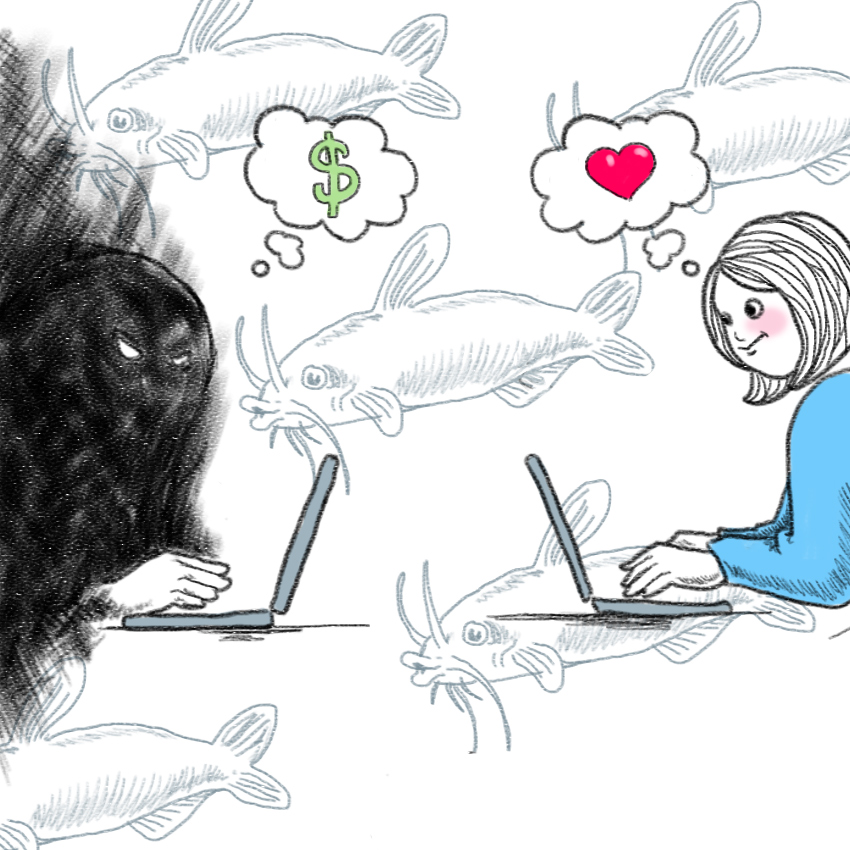
"Catfishing" is the term used for a particularly cruel kind of online scam.
In a catfishing scam, a person on the internet will create a fake identity and try to romance or seduce their target.
The term first fell into common usage after a documentary called Catfish, which follows the story of a lovelorn young man trying to find a girl he met online.
Dr. Phil's website explains it like this: "A 'catfish' is a person who creates a false online identity in the hopes of luring people into romantic relationships."
Sometimes the perpetrator is just a lonely person hoping to find happiness in a new identity. More often, they are online criminals using proclamations of love to part innocent people from their money.
But how do you know if a person you met online is the real deal or a sleazy scammer?
Scroll through to learn the red flags you should never ignore.
Sign #1: No Friends Or Followers

If you meet someone on a dating website or on social media, scroll to their Facebook profile right away.
Most scam artists have fake profiles that are doctored to look real. It can be hard to spot a fake, unless you know what you're looking for.
Check their friends list first. If they have fewer than 10 friends, that's a major red flag that might indicate it's just facade.
Also check when they created their profile. If their internet presence began just days before you met, you should probably be seriously suspicious of their motives.
In this day and age, most real people have established social media accounts with more than a few followers or friends.
Sign #2: Avoids Meetings And Skype Sessions
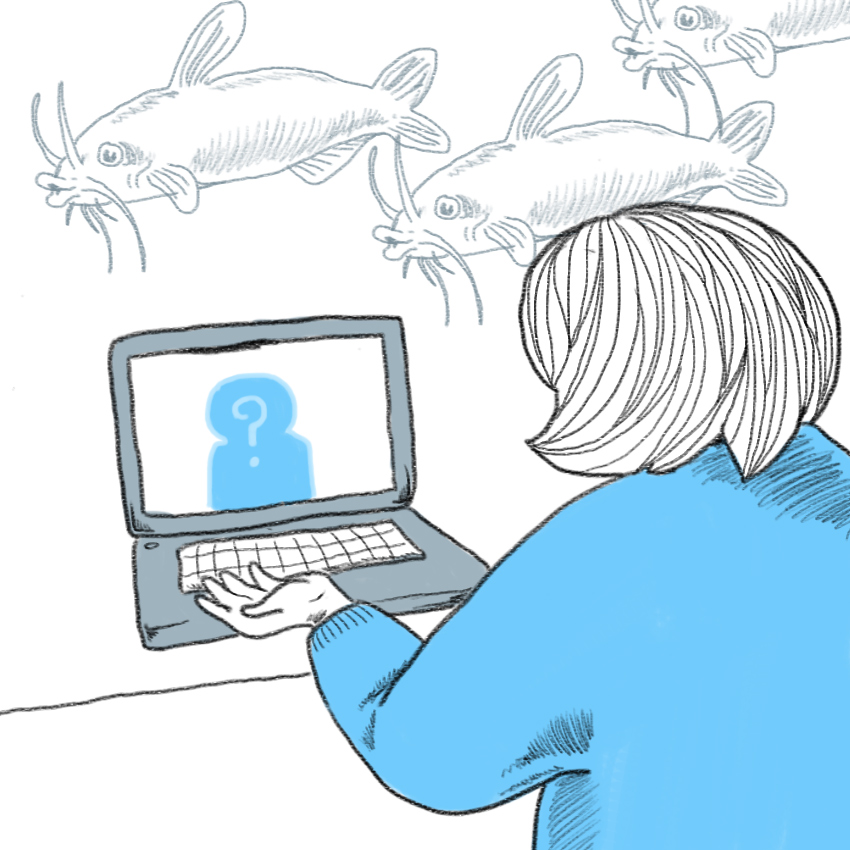
If you've been chatting with an online flame for a while, it's natural that you would eventually want to get together in person for drinks or coffee. At the very least, you might want to plan an online video chat to see each other in real time!
However, if your beau seems to be dodging you at every turn, you should start to consider the possibility that they aren't who they seem to be.
A catfish will do everything they can to avoid a face-t0-face encounter, because it might expose their lies.
A signature move is to agree to a face-to-face meeting or video call, and then bail out at the last minute, claiming a work emergency or an internet connection issue.
Sign #3: Their Picture Is Too Good To Be True
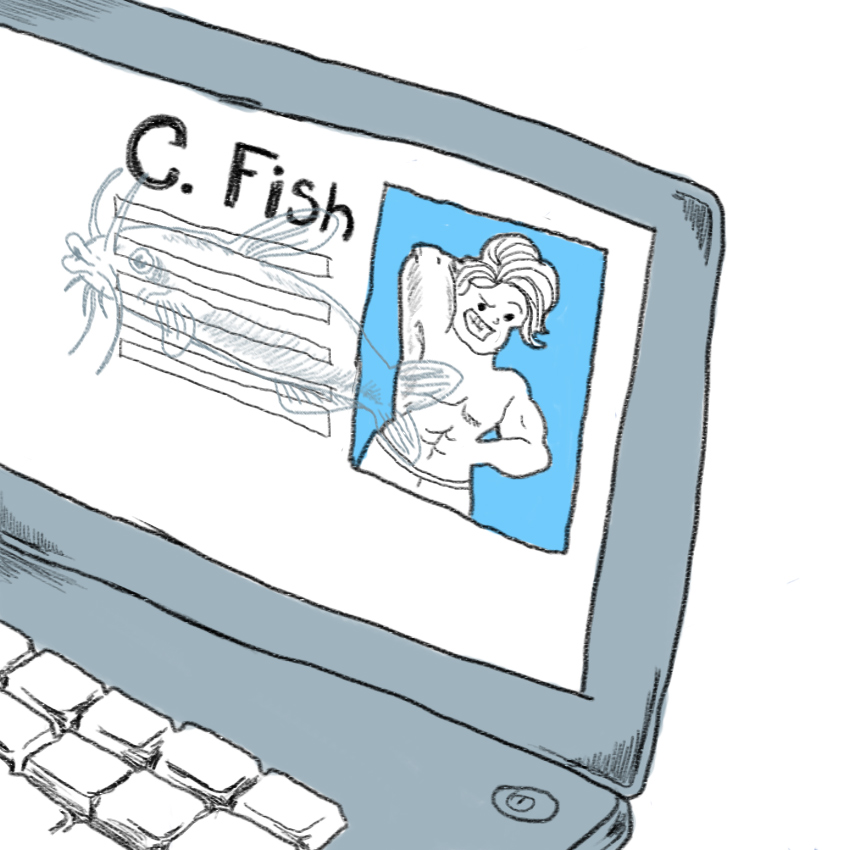
You could hardly believe your luck when you logged onto your dating app and saw this super-hottie pursuing you, but now you're getting suspicious.
After all, there is definitely such a thing as "too good to be true."
If your online friend is exceptionally beautiful or handsome, it's possible that the real person behind the account is stealing photos from a modeling or body-building website.
Also, be cautious about extremely professional photos or images that look like glamor shots; a real person will usually use a profile photo snapped by a friend on their smartphone, not a professional portrait complete with airbrushing.
Sign #4: They Claim You’re Neighbors
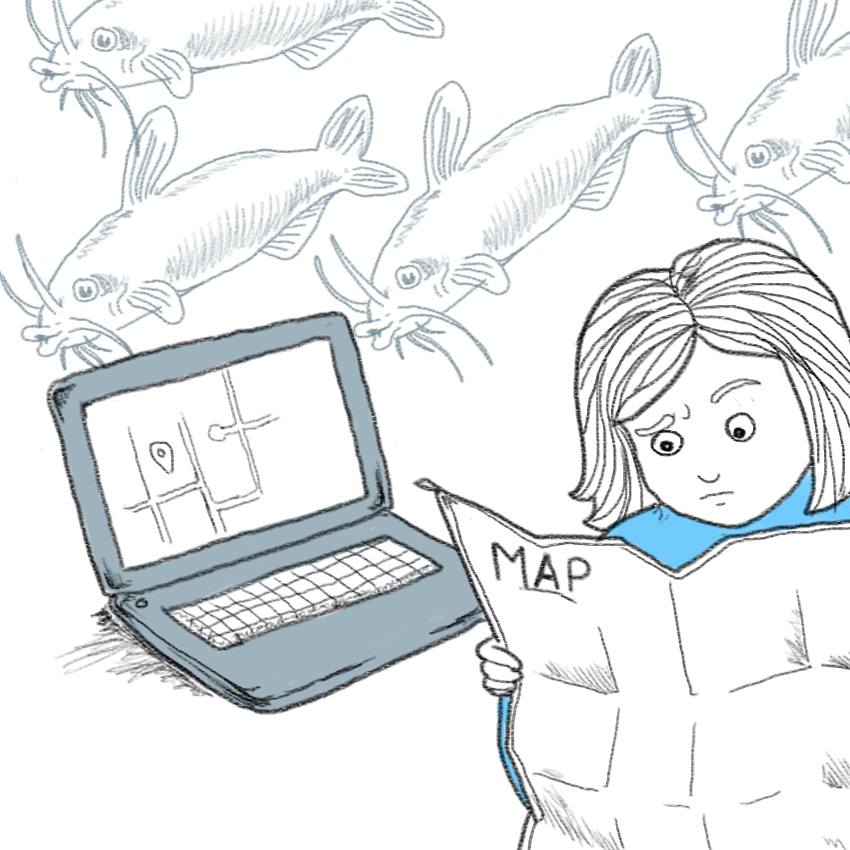
Another common ploy catfish love to use? Pretending that the two of you are neighbors.
You might get a pop-up chat or email saying, "so-and-so lives 5 miles away," or a more specific, targeted message saying something like "I think we went to high school together in [town!] What's up?"
It's not unusual to respond, thinking you're catching up with an old classmate or neighbor.
But when you get to talking, you quickly discover they seem to have no idea what the neighborhood is like, and that you have no friends or acquaintances in common.
This is a classic sign that they are faking the shared geographical connection to make you feel more comfortable with them.
Sign #5: They Get Serious Way Too Fast
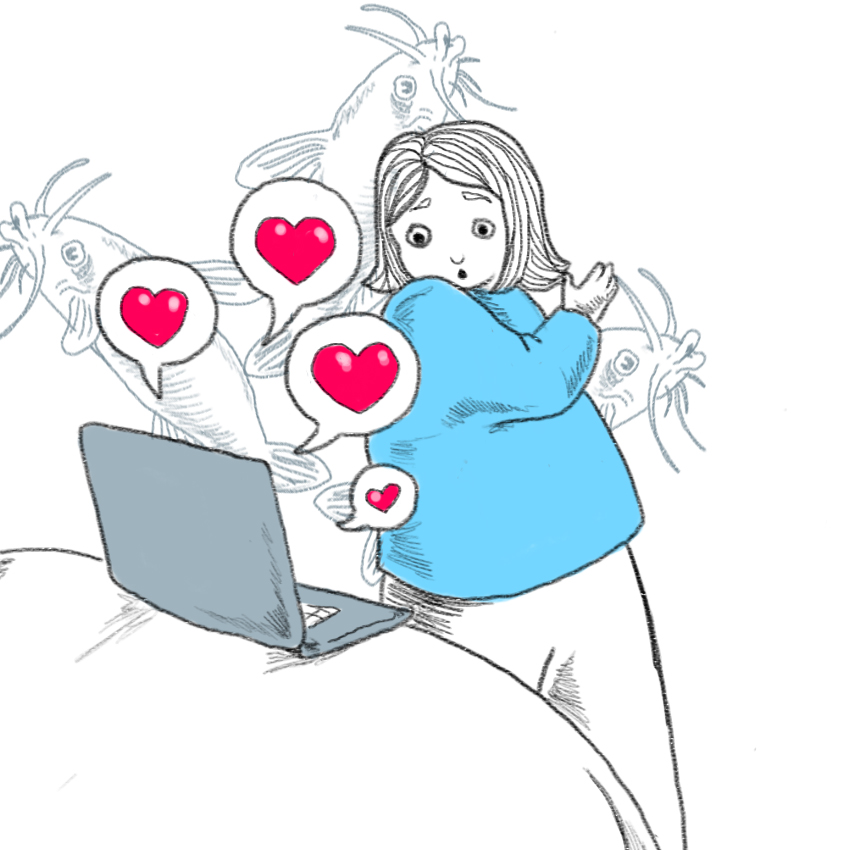
Maybe you meet someone on an online dating site and think that the two of you have hit it off, except, within a few days or weeks, your casual flirtation has gotten way too serious, way too quickly.
You haven't even gone out to dinner yet, but your new online friend is sending you undying declarations of love, passionate love letters or — yikes — proposals of marriage.
Be very, very cautious here. The over-the-top attention might feel good, but people who say "I love you" after two weeks of chatting should not be trusted.
They may be trying to create a romantic bond as quickly as possible to manipulate you into giving them money or some other advantage.
Sign #6: They Always Seem To Need Help
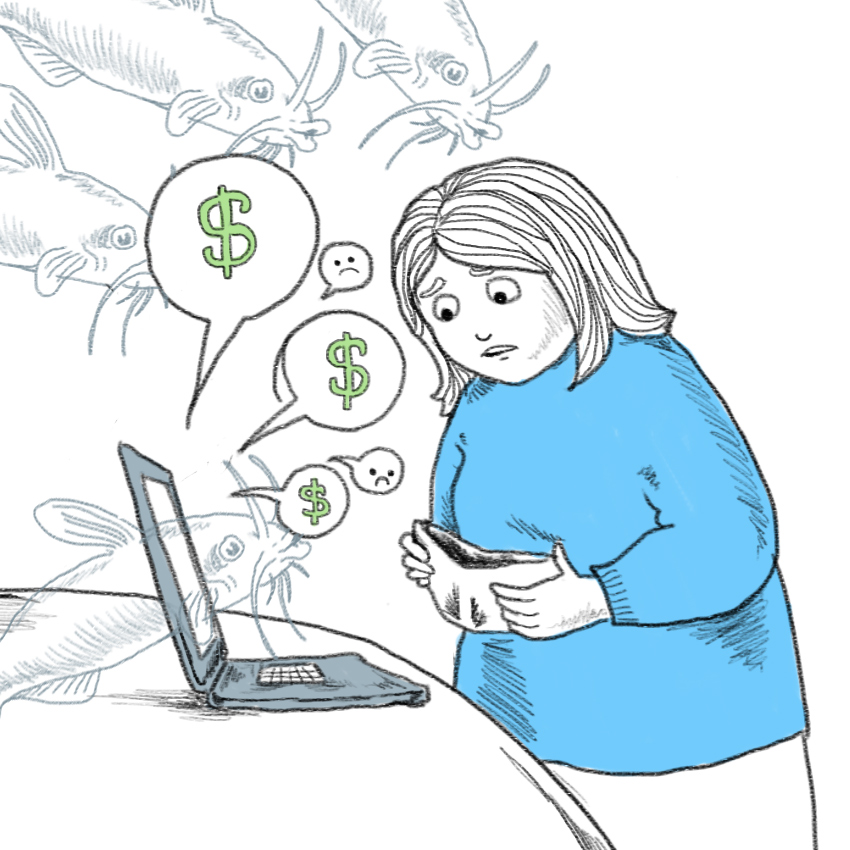
If you establish a back-and-forth with someone online, be very cautious of requests for money.
It's one thing to lend cash to a trusted friend, but it's entirely another to send it to someone you have just met, especially if they just keep asking and trying to convince you.
A catfish will always have excellent excuses lined up: "My car broke down." "I can't afford my internet bill to talk to you." "I have a life-threatening illness."
They will try to manipulate and guilt-trip you into wiring them money or buying them expensive gifts.
They may also ask you to send them money in strange formats, like Visa gift cards, money orders, or cashier's checks.
Sign #7: Their Stories Seem Far-Fetched Or Too Vague

If you're talking to someone online or via the phone, listen hard to what they say or write.
A catfish will often try to get their target to do most of the talking to avoid too much attention, so ask specific questions.
Watch out for answers that seem extremely outlandish — "I'm a fighter pilot and doctor who rescues puppies and is also fabulously wealthy" — or unusually vague — "I just like to party and have fun and have a good time with friends."
If your online fling seems to be living an extremely unusual life, you may want to grill them a bit and see whether they switch their answers or get evasive.
What To Do?

If you suspect that someone you have met online is actually a catfish, do a little background checking to confirm your suspicions.
You can also use an online service to verify the identity of the person you are chatting with.
Once you have determined you are dealing with a catfish, immediately cut off communication. Don't give the catfish the chance to try to charm you back or convince you; simply stop responding.
Next, save any incriminating messages they may have sent you, and block their account. Report their bad behavior to the dating site or social media service that you are using, and do your best to prevent future targets from the same cruel scam.
You can also SHARE this list far and wide to make sure that everyone knows the red flags to watch out for!




